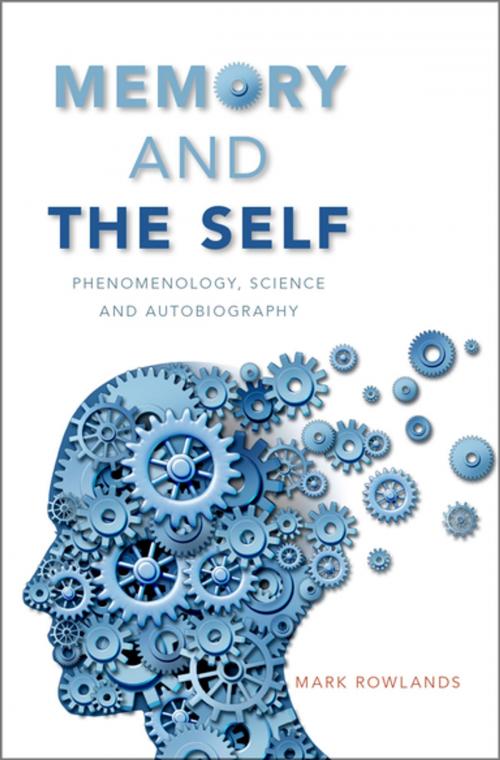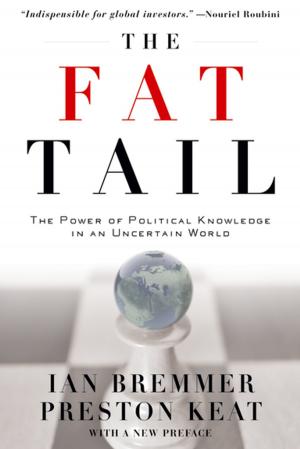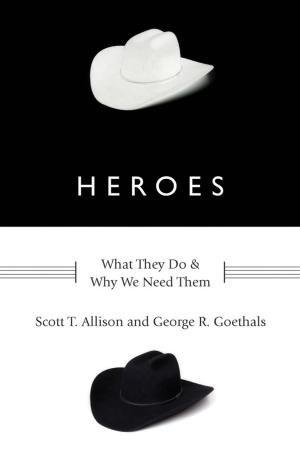Memory and the Self
Phenomenology, Science and Autobiography
Nonfiction, Science & Nature, Science, Other Sciences, Philosophy & Social Aspects, Health & Well Being, Psychology, Cognitive Psychology, Religion & Spirituality, Philosophy, Mind & Body| Author: | Mark Rowlands | ISBN: | 9780190649999 |
| Publisher: | Oxford University Press | Publication: | October 14, 2016 |
| Imprint: | Oxford University Press | Language: | English |
| Author: | Mark Rowlands |
| ISBN: | 9780190649999 |
| Publisher: | Oxford University Press |
| Publication: | October 14, 2016 |
| Imprint: | Oxford University Press |
| Language: | English |
The idea that our memories, in some sense, make us who we are, is a common one-and not at all implausible. After all, what could make us who we are if not the things we have experienced, thought, felt and desired on these idiosyncratic pathways through space and time that we call lives? And how can we retain these experiences, thoughts, feelings and desires if not through memory? On the other hand, most of what we have experienced has been forgotten. And there is now a considerable body of evidence that suggests that, even when we think we remember, our memories are likely to be distorted, sometimes beyond recognition. Imagine writing your autobiography, only to find that that most of it has been redacted, and much of the rest substantially rewritten. What would hold this book together? What would make it the unified and coherent account of a life? The answer, Mark Rowlands argues, lies, partially hidden, in a largely unrecognized form of memory-Rilkean memory. A Rilkean memory is produced when the content of a memory is lost but the act of remembering endures, in a new, mutated, form: a mood, a feeling, or a behavioral disposition. Rilkean memories play a significant role in holding the self together in the face of the poverty and inaccuracy of the contents of memory. But Rilkean memories are important not just because of what they are, but also because of what they were before they became such memories. Acts of remembering sculpt the contents of memories out of the slabs of remembered episodes. Our acts of remembering ensure that we are in the content of each of our memories-present in the way a sculptor is present in his creation-even when this content is lamentably sparse and endemically inaccurate.
The idea that our memories, in some sense, make us who we are, is a common one-and not at all implausible. After all, what could make us who we are if not the things we have experienced, thought, felt and desired on these idiosyncratic pathways through space and time that we call lives? And how can we retain these experiences, thoughts, feelings and desires if not through memory? On the other hand, most of what we have experienced has been forgotten. And there is now a considerable body of evidence that suggests that, even when we think we remember, our memories are likely to be distorted, sometimes beyond recognition. Imagine writing your autobiography, only to find that that most of it has been redacted, and much of the rest substantially rewritten. What would hold this book together? What would make it the unified and coherent account of a life? The answer, Mark Rowlands argues, lies, partially hidden, in a largely unrecognized form of memory-Rilkean memory. A Rilkean memory is produced when the content of a memory is lost but the act of remembering endures, in a new, mutated, form: a mood, a feeling, or a behavioral disposition. Rilkean memories play a significant role in holding the self together in the face of the poverty and inaccuracy of the contents of memory. But Rilkean memories are important not just because of what they are, but also because of what they were before they became such memories. Acts of remembering sculpt the contents of memories out of the slabs of remembered episodes. Our acts of remembering ensure that we are in the content of each of our memories-present in the way a sculptor is present in his creation-even when this content is lamentably sparse and endemically inaccurate.















